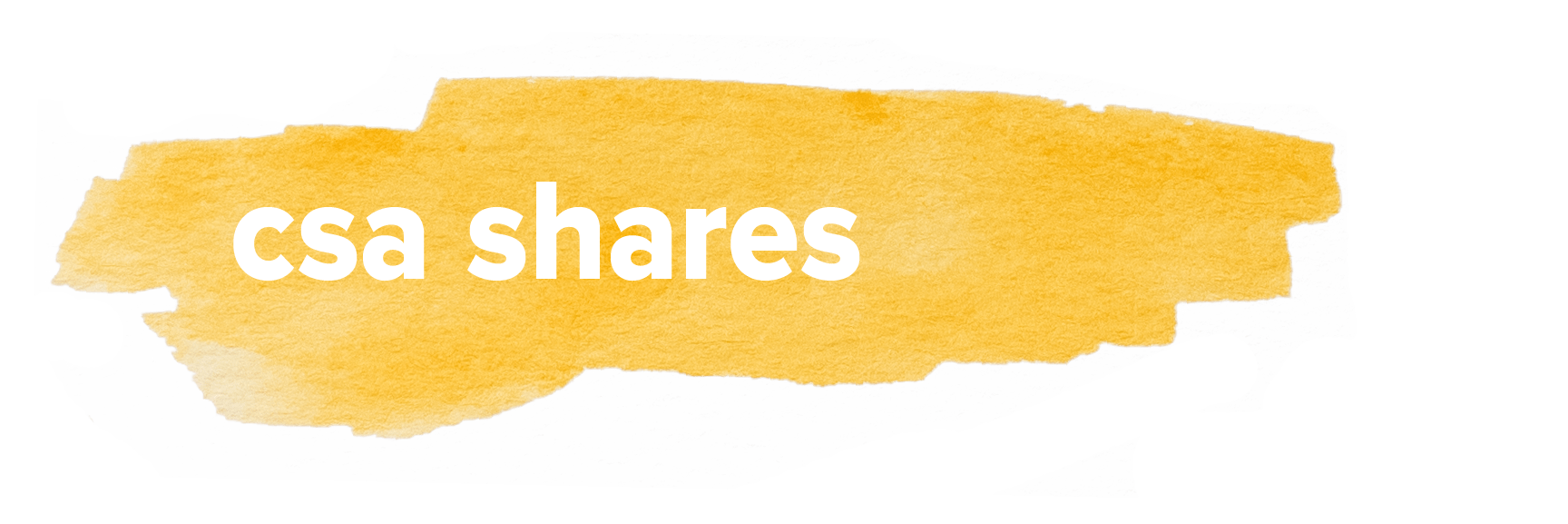

What is a CSA?
In a Community Supported Agriculture (CSA) program, the grower-seller-consumer relationship has been redesigned. Instead of becoming a customer who solely purchases food from a seller, customers become a member of a cooperative effort with a farmer/grower to enable the farm to produce clean, responsibly-grown produce. CSAs help to grow produce that has a minimal impact on the environment, creates a benefit to the customer, and provides the capital necessary for farmers/growers to produce the highest quality product possible.
How does the Student Farm CSA work?
Our CSA program is often called Campus Supported Agriculture, and is open to Penn State students, faculty and staff (members must have a PSU email address). We offer three subscription options that follow the academic calendar: Maymester, Summer and Fall. CSA members pick up a box of farm-fresh produce once per week throughout the season. Pickup is held from 4:15-5:30pm at the Vegetable Cellar on Eisenhower Road in central campus. Maymester and Summer pickups occur on Mondays, and Fall pickups occur on Thursdays. Shares are designed to feed a household of 2-4 people.
In addition, we offer a one-time Thanksgiving Harvest Share and a Winter Harvest Share over the holiday seasons.
Can’t afford veggies?
If you are a Penn State student who is unable to afford fresh produce, we are excited to be able to offer free or significantly discounted shares during the summer season. Please reach out to Leslie Pillen at lrp143@psu.edu to sign up!
Explanation of Growing Practices/Sources of Produce
The purpose of our CSA is to provide opportunities for students to gain marketing skills through the Student Farm at Penn State. The produce that is distributed each week is primarily grown on the Ross Student Farm, with some produce coming from our hydroponics system in the campus greenhouses.
Produce and Greenhouse Practices
Our CSA follows strict food safety protocols that other commercial CSAs follow. Before contacting any produce, hands and tools will be washed. Distribution of products will be done in clean, food safe containers. Some of the crops such as tomatoes and cucumbers will be harvested daily in the peak of their season. To reduce the respiration of crops and decrease bacterial multiplication, harvested crops will be stored in a refrigerator until pickup. Students in charge of final packaging will check for spoiled produce. The field and greenhouse growing spaces will be kept clean along with regular checks for pests and disease. Even with these safety precautions, there is always a risk with consuming raw foods. For more information, please visit http://www.foodsafety.gov/.
- All workers must wash their hands before handling crops.
- Produce will be harvested into clean, sanitary containers.
- Harvest dates will be recorded.
- After harvesting, produce will be kept refrigerated before distribution.
- Refrigerator temperature will be monitored and recorded to ensure produce is kept in optimum conditions.
- Produce should be thoroughly washed just before consumption.

